Zambia holds Africa Phytosanitary Programme training of phytosanitary technical staff and stakeholders
Posted on Tue, 14 May 2024, 10:03
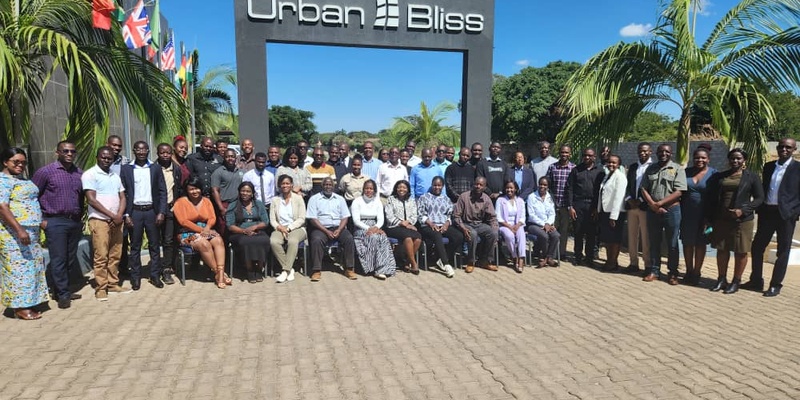
©PQPS
Kabwe, 10 May 2024- The national plant protection organization (NPPO) of Zambia- the Plant Quarantine and Phytosanitary Service (PQPS), successfully conducted a three-day training of NPPO technical staff and stakeholders in the application of the geospatial techniques in pest surveillance, under the Africa Phytosanitary Programme (APP). The training from 7-9 May 2024 in Kabwe town, located north of the Capital, Lusaka, was held with financial support from the Food and Agriculture Organization of the United Nations (FAO).
APP is an initiative of the International Plant Protection Convention (IPPC), designed to transform the technical capacity of Africa’s phytosanitary personnel within NPPOs, with science-based approaches, advanced technology, and tools to monitor, prevent, detect, and manage plant pests and diseases that threaten food security, the environment, and economic growth, said Osama El-Lissy, IPPC Secretary.
By enhancing the continent’s phytosanitary capacity, APP aims to support African countries to implement international phytosanitary standards, eliminate hunger and reduce poverty by raising economic growth through agricultural production, productivity and trade, El-Lissy added.
The IPPC implements APP in collaboration with FAO and the African Union Department of Agriculture, with financial support from the United States department of Agriculture. . The training in Zambia was led by the six NPPO staff that attended the APP “Train the Trainer” workshop in Cairo, Egypt in September 2023. Highly engaging and interactive, it was attended by 60 participants, including NPPO technical staff and stakeholders from the academia and Zambia’s largest agriculture research institution, the Zambia Agriculture Research Institute (ZARI).
A presentation was made on Zambia’s priority pests under the APP, namely, the false codling moth, citrus greening, bacterial wilt of potato, polyphagous shot hole borer and the cassava brown streak disease.
A practical session was held at Buttermere avocado farm in Central Zambia, where the NPPO has set up traps for false codling moth and fruit flies monitoring. Buttermere farm, which is currently leading in export of avocado fruits and oil from Zambia, presented a good environment for the team due to the farm’s active pest survey and monitoring, carried out in close collaboration with the NPPO.
Part of the key recommendations from the training were that henceforth, the NPPO should work closely with the stakeholders to strengthen communication, cooperation, coordination and collaboration in the implementation of APP in Zambia; enhance collaboration in pest data collection and diagnostics across the academia, the research institutions and the NPPO so that all parties involved remain active and relevant; involve all parties in data collection based on location of survey sites; and at an opportune time, add more pests of economic significance to Zambia to the APP database. Furthermore, the NPPO and stakeholders agreed to jointly mobilize resources aimed at implementing pest surveillance within the context of the APP.
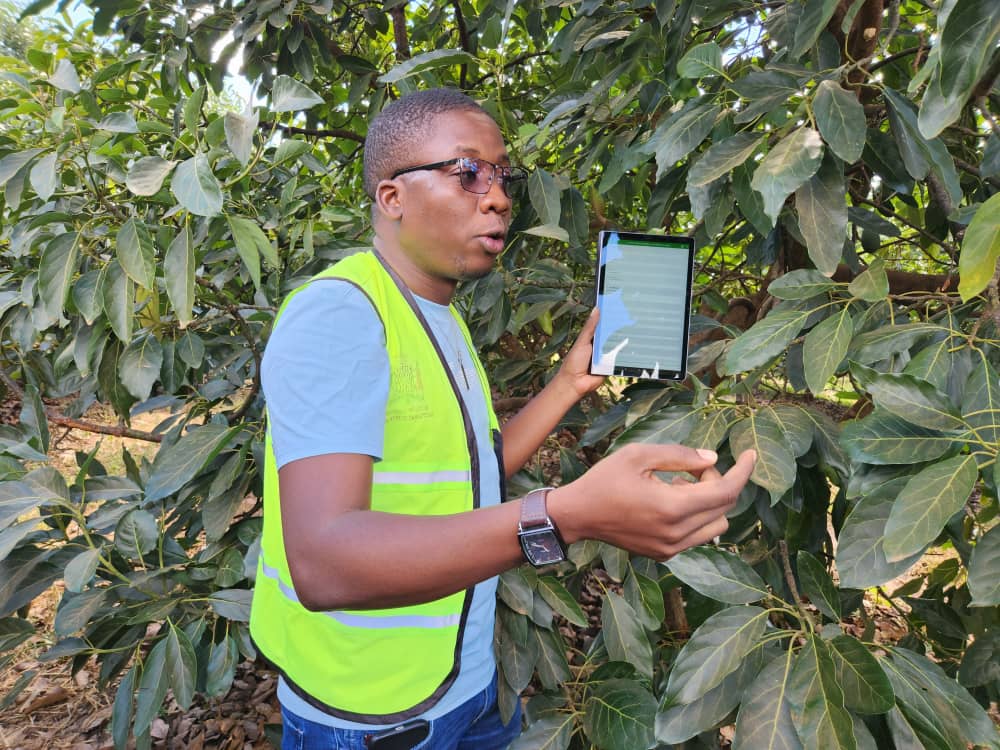
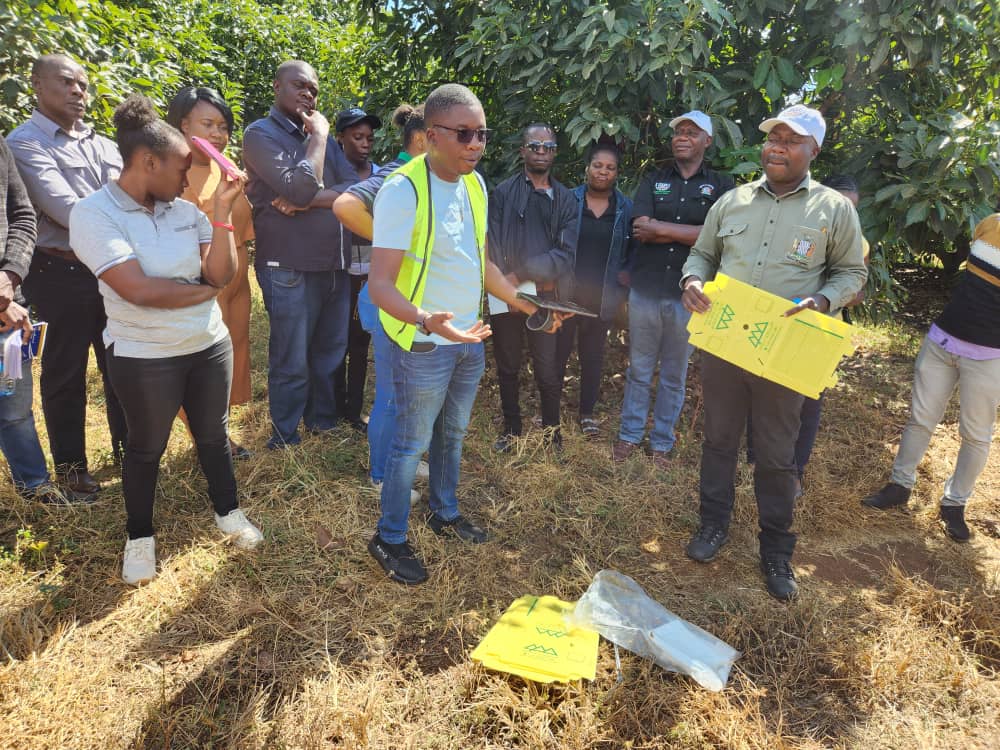
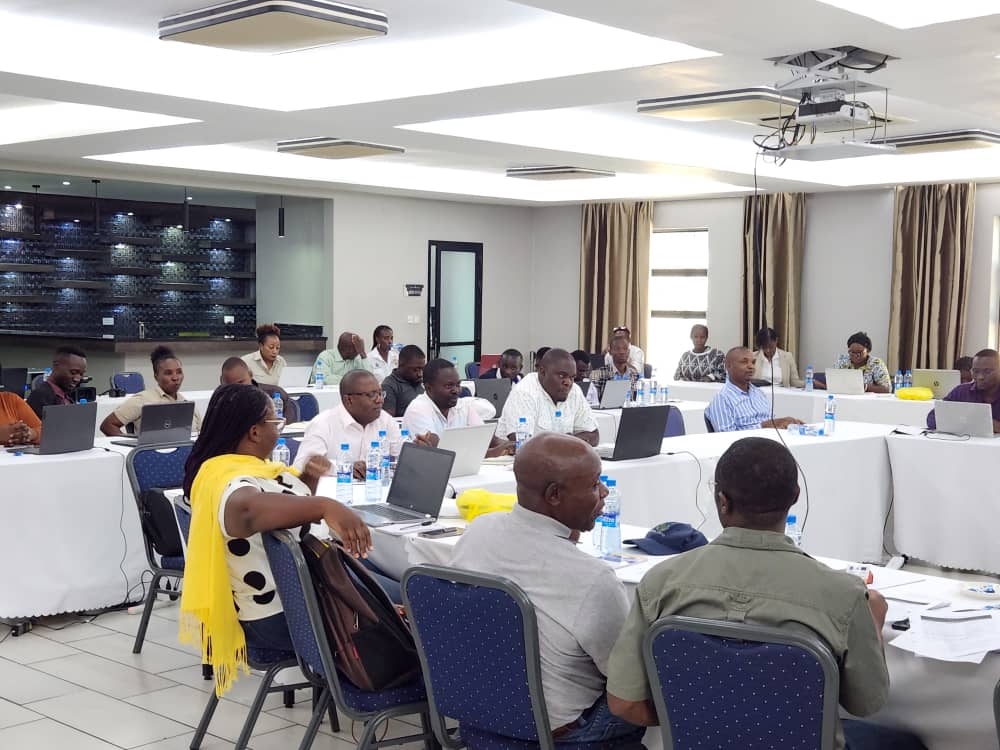
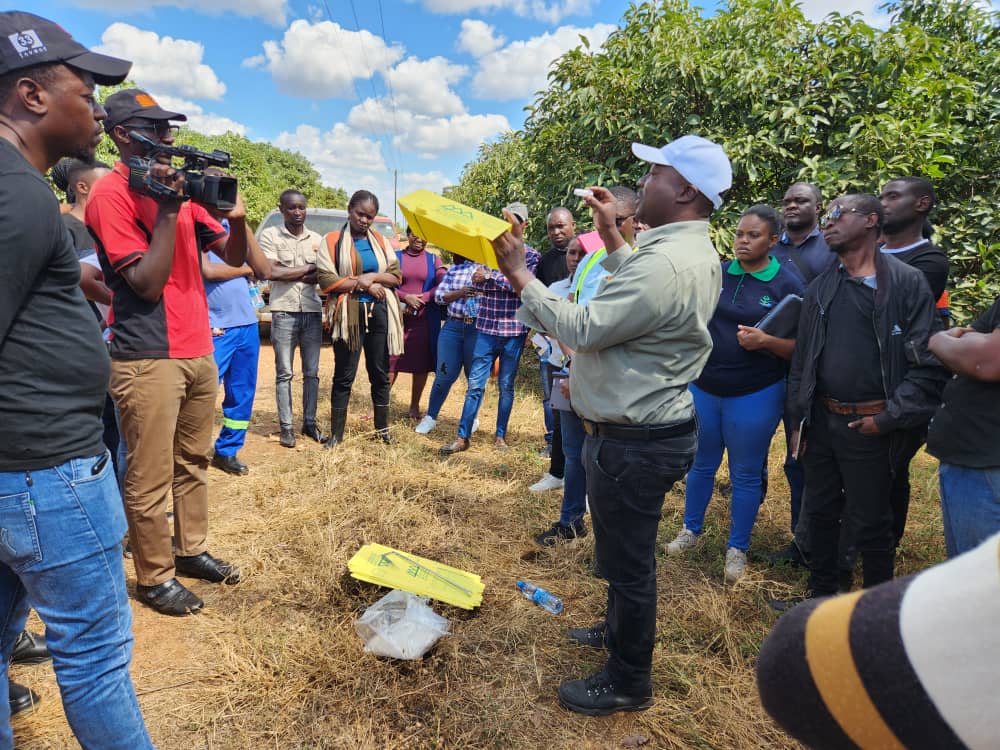 ©PQPS
©PQPS

